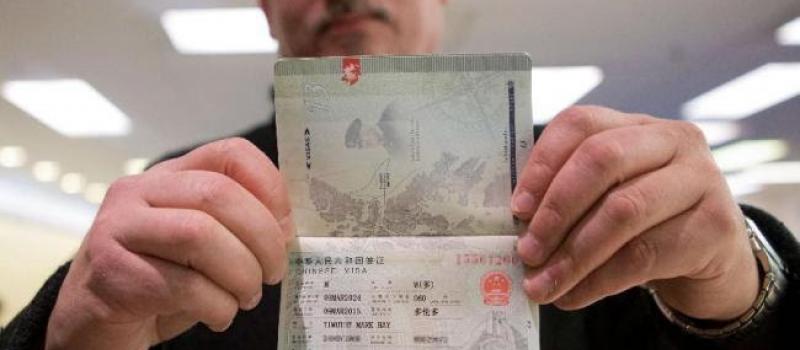China welcomes all of you, foreign friends!
posted by Xi Sun on March 19, 2018 - 8:50pm

In January, 2018, the Chinese government issued new regulations to facilitate the issuing of R visas for overseas talent. In the future, foreign experts including top scientists, international entrepreneurs and other talents whose skills are in urgent demand will be allowed to stay in China for up to 180 days at a time, with multiple entries on a visa valid from 5 to 10 years. Their spouse and children can also apply similar visas.
My mentor and Singapore's former foreign minister, George Yeo, has described the policy change as a "tidal shift." That is true. After 40-years of reform and opening-up, China now is becoming more and more open not only to foreign talent but also to all foreigners.
In 2013, Beijing, Shanghai and Guangzhou started to offer 72-hour visa-free transit. In January, 2016, Shanghai and its neighboring provinces of Zhejiang and Jiangsu began offering 144-hour visa-free transit. In December 2017, the visa-free transit through Beijing was also doubled to 144 hours, adding its neighboring Tianjin and Hebei Province into the mix as well. In January, 2018, Shenyang and Dalian airports in Liaoning province also adopted the 144-hour visa-free transit.
All this comes as US president Donald Trump curbs immigration, while China welcomes more foreigners. China's "green cards" (permanent residency cards) are becoming more in demand.
In April 2017, Chinese government revamped its permanent residency card scheme to attract more highly skilled foreigners and overseas Chinese. This January, China's Ministry of Public Security extended the valid visa term for foreigners of Chinese origin from the previous one-year period to five years, and the ministry vowed to continuously reform the system for issuing permanent residency cards to foreigners.
On December 5, 1949, the newly established People's Republic of China issued its first visa. Since China decided to open itself to the world in 1978, its door has yet to unclose. Last year, there were 598 million trips made across Chinese border, 4.76 percent increase from 2016, which is around three times as many as there were in 2000, and almost 50 times more than in 1980.
However, China still has considerable room for improvement in terms of attracting, retaining and hosting foreigners.
At the end of 2010, nearly 600,000 foreigners were living on the Chinese mainland, only 0.04 percent of China's total population of nearly 1.4 billion. By 2016, the number increased to around 800,000, 0.06 percent of its total population. The global average ratio is 2.3 percent, the average ratios in developed and developing countries are 10 percent and 1.6 percent respectively, and even relatively conservative Japan and less developed India host 1.9 percent and 0.4 percent foreigners respectively.
From 2004 to 2013, China issued over 7,000 "green cards" in total, with less than 1000 per year. In 2016, the number of "green cards" granted was 1,576, a 163 percent rise from 2015. However, by contrast, the United States, with a population of about 320 million, grants around a million "green cards" every year.
Looking back into Chinese history, openness usually meant creativity and prosperity. The Tang Dynasty is generally regarded as a glorious peak in Chinese civilization and a golden age of cosmopolitan culture. Benefiting from the prosperous Silk Road, the capital Chang'an (now Xi'an) with 2 million inhabitants was the most populous city in the world at the time, hosting about 25,000 foreigners (1.25 percent) from Persia, Central Asia, Japan, Korea, Vietnam, India and many other places.
In comparison, isolationism will only incur ignorance and backwardness. Beginning in the middle of the Ming Dynasty, and progressing through the Qing Dynasty, China closed itself to the outside world. Due to these policies, China was eventually overtaken and humiliated by foreign powers.
At present, China is confidently marching towards its "Chinese Dream," aiming to become a moderately well-off society by 2020, a modern socialist economy by 2035, and a prosperous and strong country by 2050. In the future, the "great renaissance of the Chinese nation" will be fully achieved, and China must be a more open society then.
Chinese President Xi Jinping has called for all Chinese people, whether at home or abroad, to unite toward achieving the "Chinese Dream." There are over 60 million overseas Chinese living around the world, including foreigners with Chinese ethnicity and Chinese citizens living overseas. Those overseas Chinese are the indispensable part of the "Chinese Dream."
President Xi also reiterated that "The dream of us Chinese is closely connected with the dreams of people of other countries." Therefore, everybody in world can be part of the peaceful, friendly, and inclusive "Chinese Dream", which is also the dream of the whole world.
2018 marks the 40th anniversary of the start of China's reform and opening-up policy. The policy has proven to be the best way for modern China to make progress in its own development. In the future, China will surely continue to deepen the process and become more and more open to the rest of the world.
China welcomes all of you, foreign friends!

